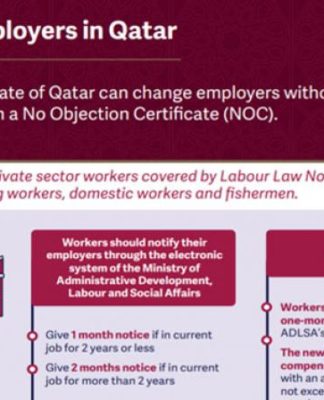Analysis
The social media-driven run on Silicon Valley Bank has repercussions on many fronts
Sky’s Ian King says the post-financial crisis rulebook will have to be reopened and updated again in the wake of last week’s events that culminated in more rescues to prevent bank failures.
Ian King
Business presenter @iankingsky
Monday 13 March 2023 14:51, UK
A law enforcement official monitors queues outside an SVB branch in the US on Monday. Pic: AP
Image:
A law enforcement official monitors queues outside an SVB branch in the US on Monday. Pic: AP
Why you can trust Sky News
While there will be huge relief at HSBC’s rescue of Silicon Valley Bank’s (SVB) UK arm, sparing the UK tech sector from a body blow, this story has a long way to run.
The repercussions will be felt for some time, particularly in the United States, where Silicon Valley Bank was the country’s 16th largest lender and a mainstay of providing banking services for the tech sector.
Already the knock-on effects of what has happened are being felt in the US dollar itself.
The greenback has weakened against other major currencies because there is a view in the market that, with SVB’s collapse having raised broader concerns about the overall resilience of the banking sector, the US Federal Reserve is going to have to slow the pace at which it has been raising interest rates.
That has also been shown in the violent rally in the value of US government bonds (Treasuries) on Monday.
The market had been assuming the Fed would raise its main policy rate next week by another quarter point. Some market participants, such as the influential economics team at Goldman Sachs, now expect no change.
That, in turn, has sent shares of a number of major US lenders lower, including Bank of America and Wells Fargo, as well as a host of smaller regional lenders.
These include First Republic Bank, a small lender which revealed on Sunday evening that it has received funding from both the Fed itself and also JP Morgan Chase, America’s biggest bank.
Joe Biden3:26
Play Video – ‘Our banking system is safe’
‘Our banking system is safe’
First Republic Bank’s shares fell by 71% in pre-market trading while other regional lenders, including Western Alliance Bancorp and PacWest Bancorp, have also seen their shares fall.
While the US and UK governments have acted quickly to shore up confidence in the banking sectors, investors will nonetheless be nervous about the profitability of the sector, particularly if interest rates stop rising so rapidly.
The repercussions are also being felt on this side of the Atlantic, too, with market expectations for the extent to which the European Central Bank will be able to raise interest rates this year also moderating.
Accordingly, shares of some big European lenders have fallen sharply including the likes of Commerzbank, Germany’s second largest lender and Sabadell, the Spanish parent of TSB. In the UK, shares of all the big lenders are sharply lower, too.
Read more:
HSBC-SVB UK deal fails to initially reassure markets
UK branch of bank bought for just £1 as taxpayer protected
US authorities step in to protect deposits
Even though fears about possible contagion in the financial services sector have been largely put to bed, there will nonetheless be other questions.
Chief among these will be for US financial regulators.
This was the biggest banking collapse since the global financial crisis but there were subtle differences from what happened then. On that occasion, banks like Lehmans had balance sheets stuffed with securities that proved to be of an inferior quality than was implied by the credit rating of those securities, for example mortgage-backed securities that, instead of being backed by high quality loans, were actually backed by sub-prime mortgages.
SVB could not have been more different. For a start, on the face of it, it looked to be well capitalised and profitable. It also did not appear to be behaving recklessly.
preview image3:04
Play Video – Purchase of SBVUK the ‘best possible outcome’
‘The best possible outcome for the UK tech sector’
Normal banking practice sees banks take money from depositors and lend it out to borrowers at a higher rate or deposit it in interest-bearing securities. However, in the case of SVB, it was taking deposits from its customers at a much faster rate than it could lend that money out.
Accordingly, having taken in vast sums from its clients in the tech sector, it then reinvested most of those deposits in US Treasury bonds which, in theory, are among the safest financial investments in the world. This, in principle, is precisely the kind of prudent behaviour that financial regulators around the world would applaud and especially in the wake of the financial crisis.
In practice, though, it was a strategy that blew up when the Fed began raising interest rates in response to inflation.
US Treasuries have repriced during the last year more aggressively than they have done in decades.
Take 2-year US Treasuries. The yield (which moves in the opposite direction to the price) rocketed from 0.732% at the beginning of 2022 to 5.084% on Wednesday last week, a level not seen since 2007, spelling trouble for anyone – like SVB – with an investment portfolio heavily concentrated in such assets. So regulators are going to be under pressure to make sure this does not happen again.
While lenders on both sides of the Atlantic have been subjected to regular stress tests since the global financial crisis, those stress tests have tended to involve scenarios like recessions and housing market collapses, rather than a sell-off in one of the world’s least risky financial assets.
It seems highly likely that, in future, banks will be required to hold a bigger portion of capital not in Treasuries but in cash.
This will, of course, have the effect of reducing their profitability.
preview image1:14
Play Video – Bank saved shows ‘great resilience in UK’
SVB UK sale shows ‘great resilience in UK’
There will also be implications for the way in which the tech sector and the venture capitalists who support it operate.
The former are going to come under greater pressure from their investors to consider more deeply what, on the face of it, are considered to be relatively mundane issues such as cash management. Tech start-ups, rather than being directed towards a specialist lender like SVB, are also more likely in future to gravitate back towards more traditional lenders – a possibility which may well have informed HSBC’s decision to buy SVB UK.
Among the most interesting facets of this saga has been the difference in the approaches taken by the UK and US governments.
Here, the UK opted for a private sector solution in seeking to try and find a buyer for SVB UK, rather than see the business tipped into an insolvency process. In the US, the government has adopted a public sector approach, with the Federal Deposit Insurance Corporation effectively backstopping depositors. Joe Biden, the US president, approvingly retweeted a tweet from the New York Times this morning which used the term ‘bail-out’.
However, this was only a bailout for SVB’s depositors, as shareholders and bondholders in SVB have effectively been wiped out.
And that, in its own way, is just as Darwinian as the UK solution.
As Bill Ackman, the noted US hedge fund manager, noted: “Our government did the right thing. This was not a bailout in any form. The people who screwed up will bear the consequences. The investors who didn’t adequately oversee their banks will be zeroed out and the bondholders will suffer a similar fate.
“Importantly, our government has sent a message that depositors can trust the banking system. Without this confidence, we are left with three or possibly four too-big-to-fail banks where the taxpayer is explicitly on the hook, and our national system of community and regional banks is toast.”
Perhaps the biggest lesson of all is that, in an age of smartphones and social media, even the most robust of banks can find themselves undermined. SVB’s problems began when some investors got wind of a possible equity fund-raising.
Then, in the tight-knit world of the US tech sector, depositors began withdrawing their capital, among them Founders Fund, the venture capital fund co-founded by the influential investor Peter Thiel.
And that, in itself, is a huge irony. Venture capital firms try to back portfolio companies over the very long term. SVB was trusted by them, accordingly, to support their clients over the long term. However, in its hour of need, SVB found itself let down in the short term by the very investors who it had apparently supported over the long term.
The VCs and their portfolio companies pulled their money from SVB because they had lost trust in the bank.
In that sense, this was a bank run not so different from any other.
Related Topics
Silicon Valley Bank





















![Qatar Labor Law In 2020??? [UPDATES]](https://welcomeqatar.com/wp-content/uploads/2020/12/Qatar-Labor-Law-1-696x366-1-324x366.jpg)







